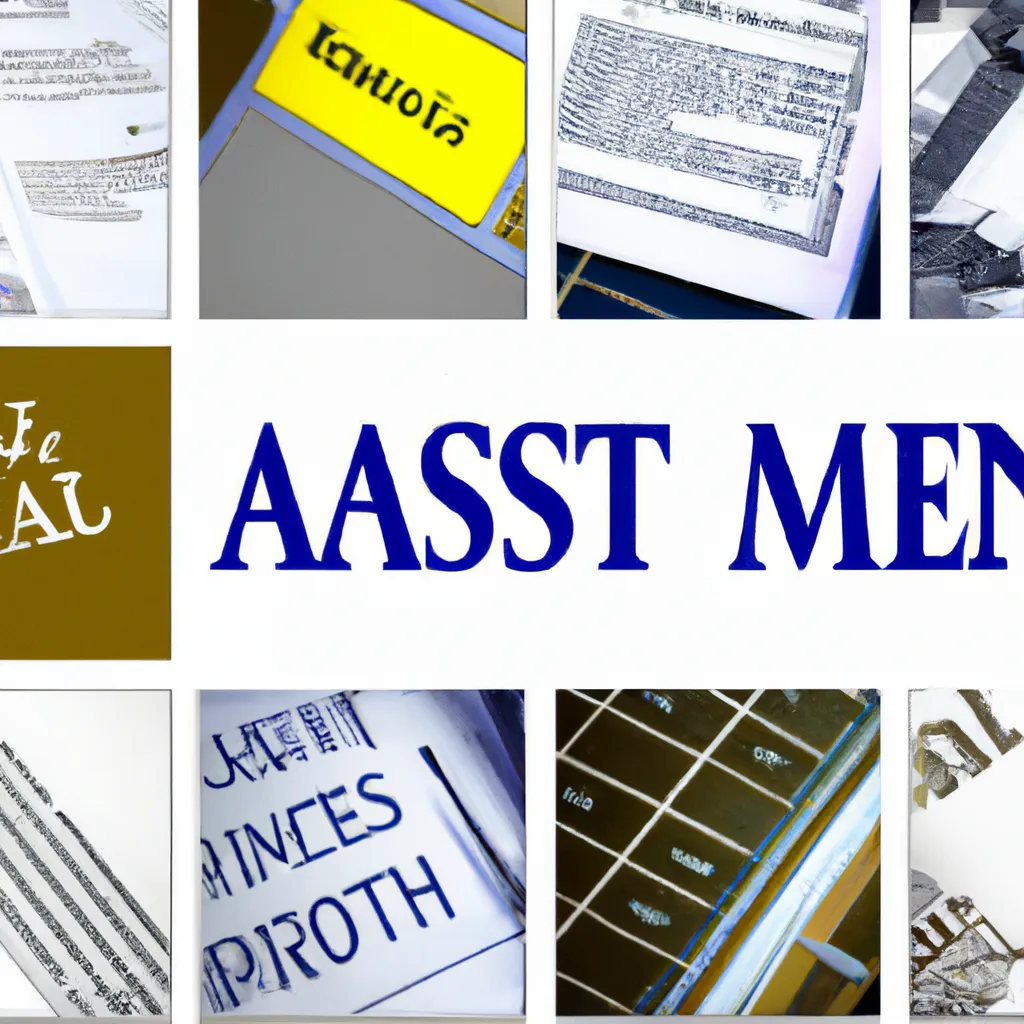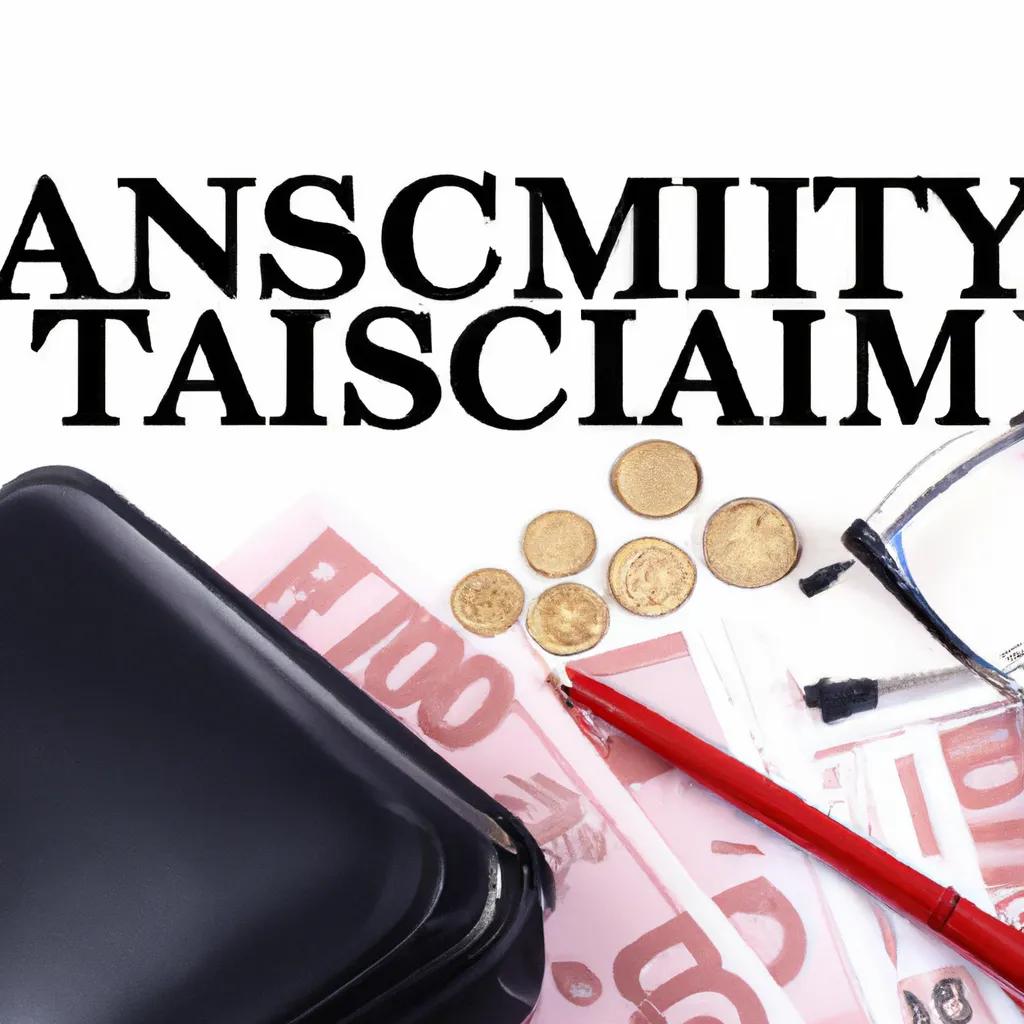Are you looking for ways to minimize inheritance tax in Calgary. As a subject matter expert in asset management, I can help you maximize your tax savings and ensure your assets are well taken care of for future generations. Inheritances can be a significant source of wealth for many families, but they can also come with high taxes. With expert asset management, you can make strategic financial decisions that will minimize your tax liability and provide financial security for your loved ones.
In my article, I will discuss various strategies and tips for maximizing inheritance tax savings in Calgary. From understanding tax laws to creating a comprehensive estate plan, I will provide valuable insights that can help you make the most of your assets. Join me as we explore the world of inheritance tax savings in Calgary through expert asset management.

Understanding inheritance tax: what you need to know
In today's society, many individuals accumulate significant wealth through their hard work and dedication. However, when the time comes to pass on their wealth to their loved ones, they may be faced with a hefty tax bill known as inheritance tax. This tax, also known as estate tax in some countries, is levied on the estate of a deceased individual and can significantly reduce the amount of wealth passed on to their beneficiaries. It is important to understand the intricacies of inheritance tax to ensure proper management and minimize its impact.
An overview of inheritance tax
Inheritance tax is a tax assessed on the inherited assets of a deceased individual. It is usually calculated based on the total value of the estate, including property, bank accounts, investments, and other valuable assets. In many countries, including calgary, inheritance tax is subject to a certain threshold, which means that not all estates will be subject to this tax. Anything over the threshold is taxed at a predetermined rate, which can vary depending on the value of the estate and the relationship between the deceased and the heirs.
Benefits of proper inheritance tax management
Proper management of inheritance tax can bring many benefits to both the deceased and their beneficiaries. Firstly, it can help reduce the tax burden on the estate, allowing for more wealth to be passed on to the heirs. In addition, it can also help avoid disputes among family members, as proper planning and management can ensure the fair distribution of assets. Furthermore, managing inheritance tax can also provide peace of mind to the deceased, knowing that their assets will be handled and distributed according to their wishes.
Avoiding costly mistakes: common inheritance tax pitfalls
One of the most common mistakes when it comes to inheritance tax is not staying up to date with the laws and regulations surrounding it. These laws can change regularly, and not being aware of the latest updates can result in a hefty tax bill or even legal consequences. Another mistake is not consulting an experienced accountant or financial advisor who can help with inheritance tax planning and management. Choosing the wrong accounting method, such as reporting on a cash basis instead of the required accrual basis, can result in incorrect tax calculations and penalties.
Another common pitfall is not having a will in place. Without a will, the deceased's assets will be subject to the laws of intestacy, which may not align with their wishes and can result in higher inheritance tax. Additionally, not considering tax exemptions and reliefs can also be a costly mistake. There may be certain exemptions or deductions available for specific assets or situations that can significantly reduce the tax bill, so it is crucial to thoroughly research and understand all available options.
Inheritance tax is a significant consideration when it comes to estate planning and wealth management. Proper understanding and management of this tax can bring many benefits, such as reducing the tax burden and avoiding disputes among family members. To ensure a smooth and fair distribution of assets, it is vital to stay informed, consult with a professional, and carefully plan and manage inheritance tax. By taking these steps, individuals can ensure their wealth is passed on to their loved ones with minimal impact from inheritance tax.

The importance of proper accounting in inheritance tax savings
The concept of inheritance tax has been a hot topic for many individuals, especially in calgary, as it directly affects their finances. It is a tax imposed on the transfer of assets from a deceased person to their beneficiaries. In this process, taxes can significantly reduce the amount of money that the beneficiaries receive, resulting in a financial burden. However, proper accounting practices can help individuals save on inheritance tax and maximize their savings. In this section, we will discuss the importance of proper accounting in inheritance tax savings and how using techniques such as accrual basis and maximizing accounts receivable can lead to significant deductions.
Utilizing accrual basis for inheritance tax
One of the essential accounting techniques that can aid in inheritance tax savings is the use of the accrual basis. This method of accounting records income and expenses as they are earned and incurred, regardless of when the cash is received or paid out. By using this technique, individuals can speed up or delay certain transactions to strategically lower their taxable income in a specific year, thus reducing their inheritance tax liability.
For example, if an individual has inherited a large sum of money and is expecting to receive a significant paycheck at the end of the year, they can accelerate expenses, such as charitable donations or mortgage payments, to lower their taxable income for that year. This, in turn, will result in lower inheritance tax liability, ultimately maximizing their savings.
Maximizing accounts receivable for inheritance tax deductions
Another critical aspect of proper accounting for inheritance tax savings is maximizing accounts receivable. Accounts receivable refers to the money that is owed to a person or company for products or services rendered but not yet received. In the case of inheritance tax, individuals can list any outstanding debts owed to them by the deceased as accounts receivable, thus reducing the overall value of the estate and, in turn, the inheritance tax liability.
For example, if a deceased person was owed money by a friend or family member, this amount can be included as part of the estate's assets, and the inheritance tax will be calculated based on a lower value. This can lead to significant deductions, resulting in higher inheritance tax savings.
Properly reporting inheritance tax in accounting periods
Lastly, it is crucial to properly report inheritance tax in accounting periods to ensure accuracy and minimize any potential errors. Inheritance tax liabilities can be complicated, and failing to report them appropriately can result in penalties and interest charges. By using the accrual basis of accounting and reporting any inheritances received or taxes paid in the correct accounting period, individuals can avoid any potential issues and ensure that they are maximizing their inheritance tax savings.
In addition, proper reporting also includes keeping organized and accurate records of all inheritance tax-related transactions and expenses. This will not only help in determining the correct amount of inheritance tax liability but also aid in identifying any potential deductions or savings opportunities.
Having a solid understanding of proper accounting practices can significantly impact an individual's inheritance tax liability and result in substantial savings. By utilizing techniques such as the accrual basis, maximizing accounts receivable, and accurately reporting inheritance tax in accounting periods, individuals can strategically lower their taxable income and maximize their deductions. This, in turn, can lead to significant inheritance tax savings and lessen the financial burden on beneficiaries.

Expert tips for managing and reducing inheritance tax in calgary
Inheritance tax, also known as estate tax, can be a significant burden for many individuals and families in calgary when it comes to passing down their assets to their loved ones. Fortunately, with some careful planning and strategic management, it is possible to reduce the impact of inheritance tax and preserve more of your hard-earned wealth for your heirs. In this section, we will discuss some expert tips and strategies for managing and reducing inheritance tax in calgary.
Taking advantage of tax-exempt transfers
One of the most effective ways to manage and reduce inheritance tax is by taking advantage of tax-exempt transfers. These transfers allow you to pass down your assets to your loved ones without incurring any tax liability.
One of the most common tax-exempt transfers is the registered retirement savings plan (rrsp) rollover for spouses and common-law partners. This allows the deceased's rrsp to be transferred to their partner without any tax implications. Additionally, gifts made to registered charities, political parties, and qualified donees are also exempt from inheritance tax.
It is important to note that tax-exempt transfers have specific eligibility criteria and limitations. It is advisable to consult with an accountant or tax specialist to ensure that you are making use of these transfers in the most effective way.
Understanding and utilizing exemptions and deductions
Another key strategy for reducing inheritance tax is by understanding and utilizing the various exemptions and deductions available. These include the basic personal amount deduction, spousal or common-law partner amount deduction, and the lifetime capital gains exemption.
The basic personal amount deduction allows individuals to deduct a certain amount from the value of their estate before calculating the inheritance tax owed. This amount is adjusted annually, and for the 2021 tax year, the basic personal amount deduction in calgary is $250,000. This means that if your estate is worth less than $250,000, no inheritance tax will be owed.
Spouses and common-law partners are also entitled to a deduction on the value of their estate when they inherit assets from their partner. This deduction can significantly reduce the inheritance tax liability for surviving spouses and common-law partners.
Additionally, the lifetime capital gains exemption allows individuals to reduce the amount of capital gains tax owed on assets such as a family business or farm when passing them down to their heirs. The lifetime capital gains exemption limit for 2021 is $892,218.
Utilizing trusts for inheritance tax savings
Trusts are another effective tool for managing and reducing inheritance tax in calgary. By setting up a trust, you can transfer your assets to your heirs while maintaining some level of control over how those assets are managed and distributed. This helps to reduce the inheritance tax burden on your heirs and ensure that your assets are used in a way that aligns with your wishes.
One type of trust that is particularly useful for inheritance tax planning is the spousal trust. This trust allows an individual to transfer their assets to their spouse upon their death without incurring any tax implications. The assets in the trust can then be distributed to the next generation upon the spouse's death, resulting in significant tax savings.
It is essential to seek professional advice when setting up a trust, as there are various types and structures available, each with its advantages and limitations. A financial advisor or estate planning lawyer can help you determine the best type of trust for your specific situation.
Managing and reducing inheritance tax in calgary requires careful planning and proper utilization of tax-exempt transfers, deductions, and trusts. By understanding the various strategies available and seeking professional advice, you can minimize the tax burden on your estate and ensure that your hard-earned assets are passed down to your loved ones according to your wishes.
Inheritance tax planning: how a professional can help you save big
Inheritance tax is a reality that many individuals face when receiving a significant sum of money or assets from a loved one's estate. In canada, this tax is known as an estate tax and is based on the fair market value of the inherited assets. In calgary, the current estate tax rate is 15%, and this can quickly add up to a significant amount if not properly planned for.
For most people, the thought of paying a hefty sum in inheritance tax can be overwhelming. That's why it's crucial to partner with a professional who specializes in inheritance tax planning to navigate this complex tax landscape and maximize your savings.
The importance of working with an experienced inheritance tax advisor
Working with an experienced inheritance tax advisor can provide numerous benefits when it comes to managing your estate and optimizing your tax savings. These professionals possess expert knowledge on tax laws and regulations, allowing them to create a comprehensive plan that takes full advantage of tax breaks and deductions.
Moreover, they can provide valuable insight on various strategies to reduce inheritance tax, such as setting up trusts or gifting assets before death. They can also work closely with your estate's accountant to ensure your estate is accurately valued and that all required forms are filled out correctly and on time.
Building a comprehensive plan for long-term savings
When it comes to inheritance tax planning, it's crucial to think long-term. An experienced advisor can help you create a comprehensive plan that not only minimizes tax liability for the current year but also for future generations.
They can assess your current financial situation and provide advice on how to structure your assets to take full advantage of tax exemptions, credits, and deductions. This may include investing in tax-advantaged accounts such as registered retirement savings plans (rrsps), tax-free savings accounts (tfsas), or individual pension plans (ipps).
Maximizing your inheritance tax savings in the calgary area
In addition to working with an inheritance tax advisor, there are several steps you can take to maximize your tax savings in the calgary area.
First, ensure that you and your estate's accountant are on the same page when it comes to determining the fair market value of your assets. By using the accrual basis rather than the cash basis in tax assessments, you may be able to reduce the value of your estate and, consequently, your inheritance tax liability.
It's also essential to review your will regularly and make updates as needed. This can help ensure that your assets are structured in the most tax-efficient way and that your beneficiaries receive their inheritance in the most beneficial way possible.
Finally, it's crucial to stay informed about any changes to inheritance tax laws and regulations. By staying up-to-date, you can work with your advisor to adjust your plan accordingly to take advantage of new opportunities.
Inheritance tax planning can be a complicated and daunting process, but working with a professional can make a significant difference in your tax savings. By building a comprehensive plan, maximizing your tax deductions, and staying informed, you can save big on inheritance taxes and ensure your loved ones receive their inheritances with minimal tax liability.

